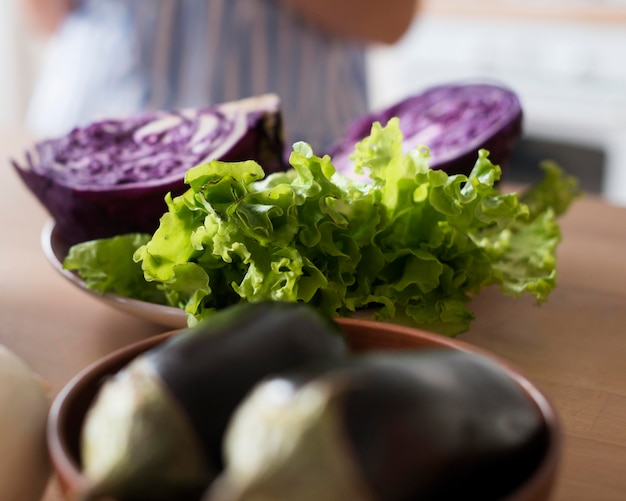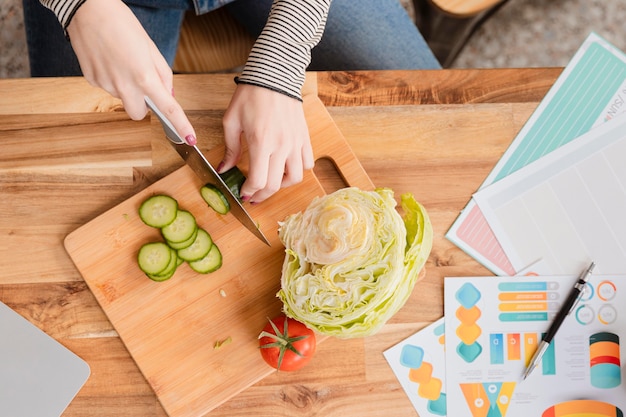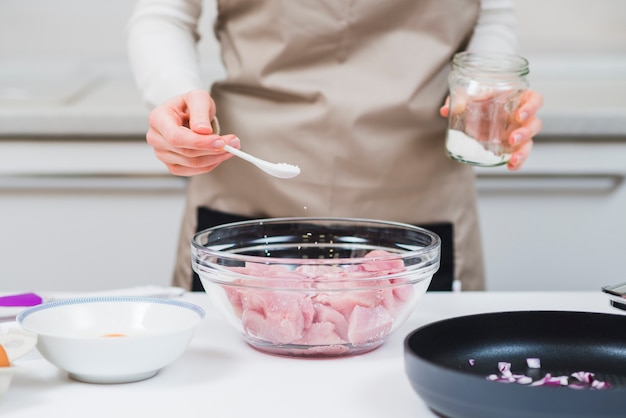Let's face it, cabbage often gets a bit of a bad rap. It's often relegated to the back of the fridge, a supporting player in a coleslaw or a basic side dish for roast dinner. But hold on a minute, cabbage is a culinary gem waiting to be discovered! It's versatile, affordable, and packed with nutrients. And the best part? It's incredibly easy to cook!
So, let's ditch the pre-packaged coleslaw and embrace the world of simple stovetop cabbage recipes. Whether you're a kitchen novice or a seasoned chef, this humble vegetable offers a wealth of culinary possibilities. Today, we'll embark on a journey of discovery, exploring a variety of dishes that showcase the flavour potential of cabbage. (Part 1)
The Great Cabbage Debate: Which One to Choose?

Before we jump into the kitchen, let's address the elephant in the room: the sheer variety of cabbages. There's red cabbage, green cabbage, savoy cabbage, and even those little sprout-looking things, Brussels sprouts. It can be a bit overwhelming, right? But fret not, we'll break it all down for you.
For our stovetop adventures, we'll focus on the classic green cabbage. It's the most common, readily available, and budget-friendly choice. Its mild flavor and firm texture make it a perfect blank canvas for a multitude of recipes.
Green Cabbage: The Versatile Workhorse
Green cabbage, or simply "cabbage" as we affectionately call it, is the go-to for most dishes. It's a star in stir-fries, coleslaws, stews, and even soups. Its sturdy leaves hold up well during cooking, making them ideal for chopping and braising. You can find green cabbage year-round, making it a reliable ingredient in any kitchen.
Red Cabbage: A Colorful Touch
Red cabbage, with its vibrant hue and slightly sweeter taste, offers a more distinctive flavor profile. It has a firmer texture than green cabbage, making it excellent for salads or adding a splash of color to your dishes. It also shines in sauerkraut and vibrant red cabbage slaw.
Savoy Cabbage: The Delicate Option
Savoy cabbage, with its crinkled leaves, brings a different texture to the table. Its slightly sweet and nutty flavor makes it a wonderful addition to braised dishes, stir-fries, or even stuffed creations.
Brussels Sprouts: Not Your Typical Cabbage
Now, let's not forget about those miniature cabbages, Brussels sprouts. They belong to the same family, but their flavor and texture are distinct. Their slightly nutty flavor can be a bit bitter if not cooked properly, but with the right technique, they can be a delicious and nutritious side dish.
For our recipes, we'll stick to trusty green cabbage, but don't hesitate to experiment with other varieties as your confidence grows. (Part 2)
The Basics of Cabbage Prep

Before you grab your knife and start chopping, there are a few essentials to remember. First, choose a cabbage that feels firm and has a good weight to it. You want to avoid any that look wilted or have blemishes. Second, wash it thoroughly under cold water, removing any outer leaves that seem damaged.
The Art of Cabbage Chopping
Now, let's talk chopping. It's all about technique. A sharp knife is your best friend here, and don't be afraid to get a good grip. You can chop your cabbage into thin slices, thicker wedges, or even finely diced pieces, depending on your recipe.
If you find yourself intimidated by the thought of chopping a whole cabbage, I have a secret weapon: a mandoline. This handy tool will create perfectly even slices, saving you time and effort. Just be careful, it's sharp!
For our recipes, we'll use a mix of chopping techniques, so don't worry too much about perfection. The key is to have fun and experiment. (Part 3)
Simple Stovetop Cabbage Recipes

Alright, let's get cooking! We'll start with some basic recipes, perfect for beginners. These recipes are easy to follow, versatile, and require minimal ingredients.
1. Sautéed Cabbage with Garlic and Butter
This is a classic and incredibly simple recipe that highlights the natural sweetness of cabbage. It's a perfect side dish for any meal, and can be enjoyed as a light lunch with a sprinkle of fresh herbs.
- 1 medium-sized green cabbage, chopped
- 2 tablespoons butter
- 2 cloves garlic, minced
- Salt and pepper to taste
1. Melt butter in a large skillet over medium heat.
2. Add garlic and cook until fragrant, about 30 seconds.
3. Add cabbage and cook, stirring occasionally, until tender and slightly browned, about 10-15 minutes.
4. Season with salt and pepper to taste.
2. braised cabbage with Apples and Bacon
This recipe combines the sweetness of apples with the smoky flavor of bacon, creating a delicious and hearty side dish. It's perfect for serving alongside roast chicken or pork.
- 1 medium-sized green cabbage, chopped
- 2 slices bacon, diced
- 1 apple, cored and diced
- 1/2 cup chicken broth
- 1 tablespoon brown sugar
- Salt and pepper to taste
1. cook bacon in a large pot or dutch oven over medium heat until crispy.
2. Add cabbage and apple to the pot and cook, stirring occasionally, until cabbage is slightly softened, about 5 minutes.
3. Stir in chicken broth and brown sugar. Bring to a simmer, cover, and cook until cabbage is tender, about 20 minutes.
4. Season with salt and pepper to taste.
3. Cabbage and Carrot Stir-Fry
This quick and healthy stir-fry is packed with flavor and nutrients. It's a great way to use up leftover rice or noodles, and perfect for a light and satisfying dinner.
- 1 medium-sized green cabbage, chopped
- 2 carrots, peeled and thinly sliced
- 2 tablespoons vegetable oil
- 1 tablespoon soy sauce
- 1 teaspoon sesame oil
- Salt and pepper to taste
1. Heat vegetable oil in a large wok or skillet over medium-high heat.
2. Add cabbage and carrots and cook, stirring frequently, until vegetables are tender-crisp, about 5-7 minutes.
3. Add soy sauce and sesame oil and cook for another minute, stirring constantly.
4. Season with salt and pepper to taste.(Part 4)
Cabbage Soup: A Comforting Classic
Now, let's move on to something more substantial – cabbage soup. It's a hearty and comforting dish, perfect for a cold winter day. And the best part? It's incredibly easy to make.
Basic Cabbage Soup: A Blank Canvas
We'll start with a basic cabbage soup recipe that you can customize to your liking. This recipe is like a blank canvas – you can add different vegetables, herbs, spices, and even meat or beans to make it your own.
- 1 tablespoon olive oil
- 1 onion, chopped
- 2 cloves garlic, minced
- 1 medium-sized green cabbage, chopped
- 4 cups vegetable broth
- Salt and pepper to taste
1. Heat olive oil in a large pot over medium heat.
2. Add onion and garlic and cook until softened, about 5 minutes.
3. Add cabbage and cook for another 5 minutes, stirring occasionally.
4. Stir in vegetable broth and bring to a simmer. Cover and cook until cabbage is tender, about 20 minutes.
5. Season with salt and pepper to taste.
Soup Variations: Get Creative!
Once you've mastered the basic recipe, it's time to experiment with your soup variations. Here are a few ideas:
- Hearty Beef and Cabbage Soup: Add 1 pound of ground beef to the pot and cook until browned. You can also add diced potatoes or other root vegetables for extra substance.
- Spicy Cabbage Soup: Add a pinch of red pepper flakes or a teaspoon of chili powder to the soup for a spicy kick.
- Lemony Cabbage Soup: Stir in the juice of half a lemon and a tablespoon of chopped fresh parsley for a bright and refreshing twist.
- Creamy Cabbage Soup: Add a cup of heavy cream or coconut milk to the soup for a rich and creamy texture.
Cabbage Coleslaw: A Refreshing Classic
Coleslaw, with its refreshing and vibrant flavors, is a perfect side dish for any barbecue or picnic. It's a staple at potlucks and family gatherings, and easy to customize with different ingredients and dressings.
Basic coleslaw recipe: The Foundation
We'll start with a basic coleslaw recipe that you can adapt to your preferences. It's a simple mix of chopped cabbage and carrots, dressed with a creamy dressing.
- 1 medium-sized green cabbage, shredded
- 2 carrots, shredded
- 1/2 cup mayonnaise
- 1/4 cup sour cream
- 2 tablespoons white vinegar
- 1 tablespoon sugar
- Salt and pepper to taste
1. Combine shredded cabbage and carrots in a large bowl.
2. In a separate bowl, whisk together mayonnaise, sour cream, vinegar, and sugar until smooth.
3. Pour dressing over cabbage mixture and toss to coat.
4. Season with salt and pepper to taste.
Coleslaw Variations: Mix It Up!
Now, let's get creative with our coleslaw variations. Here are a few ideas to make your coleslaw stand out:
- Spicy Coleslaw: Add a pinch of red pepper flakes or a teaspoon of chili powder to the dressing for a spicy kick.
- Sweet Coleslaw: Increase the sugar in the dressing to make it sweeter.
- Apple Coleslaw: Add diced apple to the cabbage mixture for a sweet and tangy flavor.
- Cranberry Coleslaw: Add dried cranberries to the cabbage mixture for a burst of tart sweetness.
Cabbage and Potatoes: A Match Made in Heaven
Cabbage and potatoes are a classic pairing, a combination that goes back generations. Their earthy flavors complement each other perfectly, creating a hearty and satisfying dish.
Cabbage and Potato Stew: Comfort in a Bowl
This stew is a perfect example of how cabbage and potatoes work together beautifully. It's packed with vegetables and a comforting broth, making it a great choice for a cold winter evening.
- 1 tablespoon olive oil
- 1 onion, chopped
- 2 cloves garlic, minced
- 1 medium-sized green cabbage, chopped
- 4 potatoes, peeled and diced
- 4 cups vegetable broth
- Salt and pepper to taste
1. Heat olive oil in a large pot over medium heat.
2. Add onion and garlic and cook until softened, about 5 minutes.
3. Add cabbage and potatoes to the pot and cook for another 5 minutes, stirring occasionally.
4. Stir in vegetable broth and bring to a simmer. Cover and cook until potatoes are tender, about 20 minutes.
5. Season with salt and pepper to taste.
Cabbage and Potato Hash: A Hearty Breakfast Option
Cabbage and potatoes can also be combined for a delicious and hearty breakfast hash. It's a great way to use up leftover cabbage and potatoes, and perfect for a weekend brunch.
- 1 tablespoon olive oil
- 1 onion, chopped
- 2 cloves garlic, minced
- 1 medium-sized green cabbage, chopped
- 4 potatoes, peeled and diced
- Salt and pepper to taste
1. Heat olive oil in a large skillet over medium heat.
2. Add onion and garlic and cook until softened, about 5 minutes.
3. Add cabbage and potatoes to the skillet and cook, stirring occasionally, until potatoes are golden brown and cabbage is tender, about 15-20 minutes.
4. Season with salt and pepper to taste.(Part 7)
Cabbage: A Nutritious Powerhouse
Let's talk about the nutritional benefits of cabbage. It's a true powerhouse of vitamins and minerals, and it's low in calories and fat. Cabbage is a fantastic source of vitamin C, vitamin K, and fiber, and it also contains antioxidants that may help protect against certain diseases.
Vitamin C Boost
Cabbage is packed with vitamin C, an essential nutrient that helps boost your immune system and protect your cells from damage. Just one cup of cooked cabbage provides over half of your daily recommended intake of vitamin C.
Vitamin K for Strong Bones
Cabbage is also a good source of vitamin K, a nutrient that is essential for blood clotting and bone health. It helps your body absorb calcium, which is crucial for strong bones.
Fiber for Digestive Health
Cabbage is a good source of fiber, which is important for digestive health. Fiber helps regulate your bowel movements and keeps you feeling full and satisfied.
Antioxidants for Overall Health
Cabbage contains antioxidants, which are compounds that help protect your cells from damage caused by free radicals. These free radicals can contribute to aging and disease, so eating a diet rich in antioxidants is important for overall health.(Part 8)
FAQs about Cabbage Cooking
Here are some frequently asked questions about cabbage cooking:
1. How do I tell if cabbage is fresh?
Look for a cabbage that feels firm and has a good weight to it. Avoid any that look wilted or have blemishes. The leaves should be crisp and bright green, and there shouldn't be any signs of discoloration.
2. How long does cabbage last in the fridge?
A whole cabbage can last in the fridge for about a week if stored properly. Wrap it tightly in plastic wrap or store it in a sealed container to prevent it from drying out.
3. Can I freeze cabbage?
Yes, you can freeze cabbage, but it's best to blanch it first. Blanching helps preserve the color and texture of the cabbage. To blanch cabbage, cook it in boiling water for 2-3 minutes, then plunge it into ice water to stop the cooking process. Drain the cabbage well and freeze it in a freezer-safe bag.
4. What are some other ways to cook cabbage?
In addition to the stovetop methods we discussed, you can also cook cabbage in the oven, on the grill, or in a slow cooker. Cabbage can also be used in stir-fries, salads, soups, and stews.
5. What goes well with cabbage?
Cabbage pairs well with a variety of flavors, including bacon, apples, garlic, ginger, onions, carrots, potatoes, and spices like cumin, coriander, and paprika.
There you have it! From basic prep to delicious recipes, we've showcased the versatility of cabbage. So next time you're looking for a simple and affordable meal, remember the humble cabbage. It might just surprise you with its flavor and versatility. Happy cooking!
Everyone is watching

Prime Rib Roast Cooking Time Chart: Per Pound Guide
Cooking TipsPrime rib roast. Just the name conjures images of lavish dinners, crackling fires, and hearty laughter. It’s ...

How Long to Bake Potatoes in the Oven (Perfect Every Time)
Cooking TipsBaked potatoes are a staple in my kitchen. They're incredibly versatile, delicious, and surprisingly easy to m...

Perfect Rice Every Time: The Ultimate Guide to Cooking Rice
Cooking TipsAs a self-proclaimed foodie, I've always been a bit obsessed with rice. It's the foundation of countless cuisi...

The Ultimate Guide to Cooking Asparagus: Tips, Techniques, and Recipes
Cooking TipsAsparagus. The mere mention of this spring delicacy conjures up images of vibrant green spears, crisp and burs...

Ultimate Guide to Cooking the Perfect Thanksgiving Turkey
Cooking TipsThanksgiving. Just the word conjures up images of overflowing tables laden with delicious food, the scent of r...
